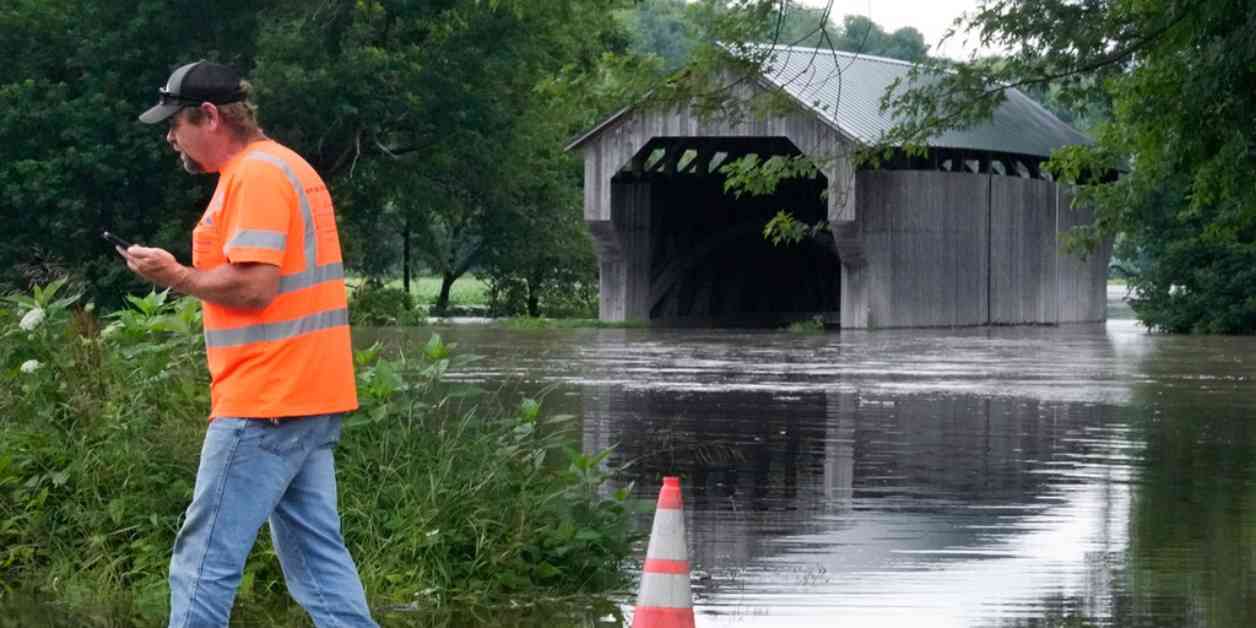Vermont Governor Phil Scott recently addressed the media, stating that it will take a few more days to evaluate the extent of the damage caused by the flooding resulting from Hurricane Beryl. Despite the devastation, Scott commended the resilience of Vermont residents and emphasized that the state is better equipped to handle the aftermath of the hurricane compared to last year’s flooding.
The remnants of Hurricane Beryl brought more than 6 inches of rain in a short period, leading to the destruction of homes, bridges, and isolation of towns. Tragically, two individuals lost their lives due to the floodwaters. As Vermonters began the cleanup process, some of the hardest-hit areas were communities along the Winooski River and its branches, as well as northern regions of the state.
The Vermont Department of Transportation has allocated nearly $30 million in town highway payments to assist communities in repairing damaged infrastructure. The state has already reopened the majority of the roads that were closed due to flooding. Public Safety Commissioner Jennifer Morrison encouraged residents to take advantage of the upcoming sunny weather to expedite the cleanup process and reduce the risk of mold.
In the midst of the devastation, stories of resilience and community support emerged. Despite the challenges faced by residents, many came together to help each other, showcasing the spirit of unity and solidarity in times of crisis. The state swift-water teams, along with local emergency responders, rescued numerous individuals, demonstrating the importance of teamwork during emergencies.
Vermont, though not a coastal state, has been impacted by tropical weather systems in the past. Following Tropical Storm Irene in 2011, the state implemented updated requirements for culverts and bridges to withstand future extreme weather events. While the recent flooding caused significant damage, the structures built to higher standards after Irene remained intact.
Moreover, Vermont took a proactive step in addressing climate change by passing a law that holds fossil fuel companies accountable for their role in extreme weather events. However, the success of this initiative hinges on legal action against the well-funded oil industry.
As Vermonters come together to recover from the recent flooding, the state officials emphasize the importance of community support and mutual aid. Residents who were spared from severe damage this time are encouraged to assist those in need, highlighting the collective strength and compassion that define Vermont’s response to disasters.
In conclusion, the recent flooding in Vermont serves as a stark reminder of the impacts of climate change and the importance of resilience and community solidarity in overcoming challenges. As the state continues to recover and rebuild, the spirit of unity and support among Vermonters remains unwavering, paving the way for a more resilient future.


